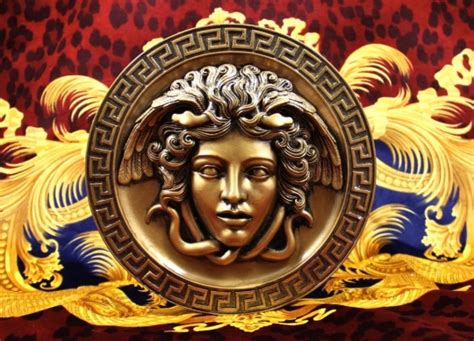versace ancient greece | versace logo greek mythology versace ancient greece Versace’s connection to Greek mythology is clear through its use of the . Uzņēmums SIA Creamfinance Latvia. Zīmols CreditOn Latvijas tirgū darbojas jau astoņus gadus un ir pazīstams arī ārzemēs. Kopumā tas saviem klientiem piedāvā standarta īstermiņa kredītu pakalpojumus. Galvenā mītne. Adrese: Uriekstes iela 24, Ziemeļu rajons, Rīga, LV-1005, Latvija. Aizdevums ir ar mērķi: Daudzveidīgas kredītu .
0 · why does versace use medusa
1 · why did versace choose medusa
2 · what is the versace symbol
3 · versace mythology
4 · versace logo greek mythology
5 · versace greek mythology
6 · versace greek motif
7 · versace greek goddess
Credit24 kredīti – saņem naudu, kad nepieciešams. Credit24 kredīti ir piemēroti ikvienai dzīves situācijai. Mūsu kredīts internetā tev noderēs gan mājokļa remontam un kāzām, gan veselībai un ceļojumam. Izvēlies Credit24 un nosaki aizdevuma summu pats! Atmaksas termiņš līdz 60 mēnešiem. Pieejamā kredīta summa no 100 līdz 7000 €
why does versace use medusa
Versace blends ancient Greek mythology with modern luxury fashion from its iconic Medusa logo to timeless Greek motifs.
why did versace choose medusa
Versace’s connection to Greek mythology is clear through its use of the . Versace blends ancient Greek mythology with modern luxury fashion from its iconic Medusa logo to timeless Greek motifs.
Versace’s connection to Greek mythology is clear through its use of the Medusa logo and its collections inspired by ancient Greece. The brand’s incorporation of these elements has helped to create a unique identity that sets it apart from other luxury fashion brands. But did you know that much of Versace’s inspiration comes from Greek mythology? In this article, we’ll explore how the world of ancient Greek gods and goddesses has influenced one of the most iconic fashion brands in the world. Gianni Versace – The Mastermind Behind The Mythology InfluenceExhibition Overview. From the clothing of ancient Greece to such modern evocations as Madame Grès's emblematic creations and Versace's Neoclassical loincloths, classical dress has profoundly inspired and influenced art and design over the millennia.
The third and largest gallery, "Versace and History" revealed his appreciation of ancient Greece and Rome, Byzantine crosses, madonnas, 18th-century court-style silhouettes, and 1920s and 1930s themes of the Vienna Secession, Vionnet, and Madame Grès.
The references to Ancient Greece will then always be present in Versace’s creations, with prints with decorative motifs such as the head of Medusa and the Greek frame, but also architectural and sculptural elements. Gianni and Donatella Versace grew up in Calabria, Southern Italy. Once occupied by the ancient Greeks, the surrounding land is scattered with ruins and artefacts - reminders of Calabria’s rich Magna Graecia history.
what is the versace symbol
versace mythology
rolex sky dweller stahl gold preis
15 Years without Gianni Versace. Discover the aesthetic world of Versace and breathe in the art of Magna Graecia that imbues the creations of this fashion genius. By Museo del Traje, Madrid..
One of the most recognizable motifs in the Versace collection is the Greek Key, also known as meander or meandros. This ancient motif has been used in various forms of art and design for centuries, but why did Versace decide to incorporate it into their designs? Let’s explore. The History of the Greek Key
By using a motif from Greek mythology, Versace pays homage to its origin in Magna Graecia, the name given to the Southern Italian locations where many Greeks colonized and settled beginning in 8th century BC. The logo also shows Versace’s appreciation for art and history, as well as its creativity and innovation. Versace blends ancient Greek mythology with modern luxury fashion from its iconic Medusa logo to timeless Greek motifs.
Versace’s connection to Greek mythology is clear through its use of the Medusa logo and its collections inspired by ancient Greece. The brand’s incorporation of these elements has helped to create a unique identity that sets it apart from other luxury fashion brands. But did you know that much of Versace’s inspiration comes from Greek mythology? In this article, we’ll explore how the world of ancient Greek gods and goddesses has influenced one of the most iconic fashion brands in the world. Gianni Versace – The Mastermind Behind The Mythology Influence
Exhibition Overview. From the clothing of ancient Greece to such modern evocations as Madame Grès's emblematic creations and Versace's Neoclassical loincloths, classical dress has profoundly inspired and influenced art and design over the millennia. The third and largest gallery, "Versace and History" revealed his appreciation of ancient Greece and Rome, Byzantine crosses, madonnas, 18th-century court-style silhouettes, and 1920s and 1930s themes of the Vienna Secession, Vionnet, and Madame Grès.The references to Ancient Greece will then always be present in Versace’s creations, with prints with decorative motifs such as the head of Medusa and the Greek frame, but also architectural and sculptural elements.
Gianni and Donatella Versace grew up in Calabria, Southern Italy. Once occupied by the ancient Greeks, the surrounding land is scattered with ruins and artefacts - reminders of Calabria’s rich Magna Graecia history.15 Years without Gianni Versace. Discover the aesthetic world of Versace and breathe in the art of Magna Graecia that imbues the creations of this fashion genius. By Museo del Traje, Madrid.. One of the most recognizable motifs in the Versace collection is the Greek Key, also known as meander or meandros. This ancient motif has been used in various forms of art and design for centuries, but why did Versace decide to incorporate it into their designs? Let’s explore. The History of the Greek Key

versace logo greek mythology
versace greek mythology
View the profiles of people named Crespo LV. Join Facebook to connect with Crespo LV and others you may know. Facebook gives people the power to share.
versace ancient greece|versace logo greek mythology


























